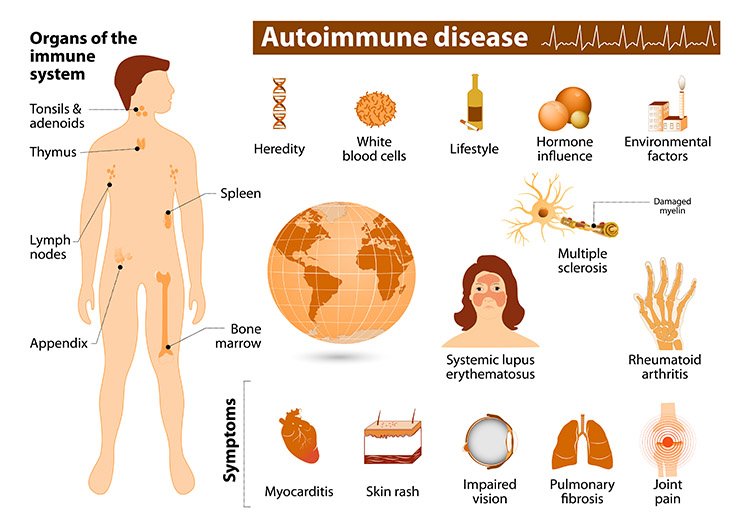Weight loss is often portrayed as a dramatic, fast-paced transformation—a whirlwind of strict diets, extreme workouts, and before-and-after pictures that seem too good to be true. And often, they are. The problem with this fantasy is that it sets people up for failure. When results don’t come fast enough, discouragement sets in, motivation fades, and old habits creep back.
Realistic weight loss goals aren’t just more achievable—they’re sustainable. They reflect the understanding that weight loss is a journey, not a sprint. It’s about progress, not perfection. Most importantly, it’s about creating a lifestyle that supports your health and happiness in the long run.
In this comprehensive article, we’ll explore what makes a weight loss goal realistic, how to set one, and the physical, mental, and emotional components that contribute to meaningful, lasting change.
Rethinking the Number on the Scale
For most people, weight loss is synonymous with stepping on a scale and watching the number go down. But this number is just one small piece of the puzzle. Body weight fluctuates daily due to water retention, hormones, sleep, stress, and more. It doesn’t always accurately reflect fat loss or health improvements.
Instead of obsessing over a specific weight, consider setting goals that focus on behavior, health, and how you feel. For example, fitting into a favorite pair of jeans, improving stamina during workouts, lowering blood pressure, or simply having more energy. These goals are often more motivating and meaningful than a number alone.
Of course, setting a weight target can still be helpful—but it should be flexible, realistic, and based on more than just aesthetics.
The Myth of Losing 10 Pounds in a Week
It’s tempting to believe the promises of crash diets or “miracle” plans that guarantee 10 pounds gone in 7 days. And while rapid weight loss is possible—especially when extreme calorie restrictions or water loss are involved—it’s rarely healthy or sustainable.
The body responds to drastic weight loss with biological countermeasures. It slows metabolism, increases hunger hormones, and decreases satiety hormones—all designed to restore balance and preserve fat stores. This is why so many people regain weight after a crash diet.
A realistic and safe weight loss pace is about 1 to 2 pounds per week. It might not be flashy, but it reflects actual fat loss rather than muscle loss or water depletion. More importantly, it gives your body—and mind—time to adapt to new habits and maintain results.
Setting SMART Goals for Sustainable Progress
Realistic weight loss goals follow the SMART principle: Specific, Measurable, Achievable, Relevant, and Time-bound.
- Specific: Rather than saying “I want to lose weight,” specify what you want to achieve and how. For instance, “I want to lose 10 pounds in three months by walking 30 minutes a day and eating fewer processed foods.”
- Measurable: Choose goals you can track. Whether it’s the number on the scale, inches lost, or number of home-cooked meals per week, measurable goals help you stay motivated and accountable.
- Achievable: Ambition is good—but goals that are too extreme can backfire. Choose a pace and methods that fit your lifestyle.
- Relevant: Focus on goals that matter to you personally. Whether it’s being more active with your kids, improving health markers, or feeling more confident, your “why” keeps you grounded.
- Time-bound: Having a timeline creates urgency and structure. Just remember to keep it realistic.
By setting SMART goals, you create a roadmap to success—one that’s based on habits, not hope.
Focusing on Habits Over Outcomes
Weight loss is the result of habits repeated over time. That’s why focusing on building consistent behaviors is often more effective than obsessing over outcomes. When you shift your attention to what you can control—what you eat, how you move, how you manage stress—you empower yourself to make lasting changes.
Start with small, manageable changes:
- Swapping soda for water.
- Taking a 10-minute walk after dinner.
- Cooking one more meal at home each week.
- Getting to bed 30 minutes earlier.
These micro-habits might not seem like much at first, but they compound over time. More importantly, they create a sense of momentum and self-efficacy—two crucial ingredients for sustained weight loss.
Nutrition Goals That Make Sense
Many people approach weight loss with a restrictive mindset: cutting out entire food groups, slashing calories, or following rigid meal plans. But these strategies often lead to deprivation, bingeing, and burnout.
A more realistic approach to nutrition involves:
- Balanced meals: Aim for a mix of lean protein, fiber-rich carbs, and healthy fats.
- Portion awareness: Use smaller plates, eat slowly, and stop when satisfied—not stuffed.
- Mindful eating: Eat without distractions, savor flavors, and listen to hunger cues.
- Sustainable swaps: Replace high-calorie favorites with healthier versions—like air-popped popcorn instead of chips, or Greek yogurt instead of sour cream.
Instead of focusing on what you can’t have, focus on adding more nutrient-dense foods to your diet. This creates a positive frame of mind and naturally crowds out less healthy options.
Exercise Goals That Stick
Exercise doesn’t have to mean boot camp classes or grueling gym sessions. The best workout is the one you enjoy—and the one you’ll stick with. Setting realistic fitness goals means aligning movement with your interests, schedule, and fitness level.
Some achievable exercise goals include:
- Walking 7,000 to 10,000 steps a day.
- Doing strength training twice a week.
- Trying a new activity like swimming, dancing, or yoga.
- Incorporating movement into your routine—like walking while on phone calls or stretching during TV commercials.
Consistency beats intensity. You don’t need to go all-out every day—you just need to move your body regularly. Over time, your strength, stamina, and confidence will grow.
Emotional and Mental Health Goals
Weight loss isn’t just a physical journey—it’s deeply emotional and psychological. That’s why setting mental health goals is just as important.
Some realistic mental goals include:
- Practicing daily gratitude.
- Journaling your thoughts around food and body image.
- Meditating for 5 minutes a day.
- Speaking kindly to yourself in the mirror.
When you feel better emotionally, you’re more likely to make choices that support your health. Working with a therapist, counselor, or coach can also help uncover deeper emotional eating patterns and build better coping strategies.
Celebrating Non-Scale Victories
Progress isn’t always reflected on the scale. In fact, some of the most meaningful wins happen off the scale—and recognizing them can boost motivation and self-esteem.
Celebrate milestones like:
- Clothes fitting better.
- Sleeping more soundly.
- Increased energy levels.
- Less joint pain.
- Improved digestion.
- Feeling more confident or empowered.
These victories remind you that your efforts are paying off, even if the scale isn’t moving as fast as you’d like. They also help shift the focus from weight to overall wellness.
Building a Support System
Weight loss can feel isolating—especially if people around you don’t share your goals or understand your journey. That’s why building a support system is crucial.
This could include:
- Joining a fitness class or walking group.
- Connecting with friends or family who uplift you.
- Following supportive communities online.
- Working with a nutritionist, trainer, or therapist.
Support provides accountability, encouragement, and perspective. It reminds you that you’re not alone—and that setbacks are part of the process, not the end of it.
Avoiding Perfectionism and the “All-or-Nothing” Trap
One of the biggest barriers to weight loss success is the belief that you have to be perfect. One indulgence, skipped workout, or pound regained can feel like failure—but it’s not.
Realistic goals allow room for flexibility. Life happens. You might overeat, skip a week of workouts, or gain a few pounds during the holidays. That doesn’t mean you’ve failed. It means you’re human.
The key is to get back on track without guilt or shame. Progress isn’t linear. Sustainable weight loss includes ups, downs, plateaus, and pivots. Learning to ride those waves with resilience is what leads to long-term success.
Creating a Long-Term Plan, Not a Short-Term Fix
Short-term weight loss plans often fail because they aren’t designed to last. They rely on unsustainable methods that leave you hungry, exhausted, and deprived.
A long-term plan, on the other hand, fits your life. It evolves with you. It allows for vacations, birthdays, and rest days. It includes strategies for maintenance and relapse recovery. Most importantly, it prioritizes your physical and mental health above quick results.
Your long-term plan might include:
- Ongoing education about nutrition and wellness.
- Seasonal goal-setting and habit reviews.
- Regular check-ins with professionals or support groups.
- Continued exploration of new foods, workouts, and self-care routines.
Weight loss isn’t a destination—it’s a lifestyle. The more you tailor your plan to your values, needs, and reality, the more likely it is to stick.
Knowing When to Re-Evaluate Your Goals
Sometimes, despite our best efforts, our goals need to change. Maybe you’ve hit a plateau, your priorities have shifted, or your health needs have evolved. That’s okay.
Re-evaluating your goals doesn’t mean giving up—it means staying responsive and realistic. Check in with yourself regularly. Are your goals still serving you? Are they aligned with your life today? Do they energize or exhaust you?
Updating your goals keeps your journey relevant and fulfilling. It also reminds you that growth includes flexibility, not rigidity.
Conclusion: Progress, Not Perfection
Realistic weight loss goals aren’t about shortcuts, punishment, or chasing someone else’s ideal. They’re about creating a version of health and wellness that works for you. A version that honors your body, respects your life, and evolves over time.
You don’t have to lose 50 pounds overnight. You don’t have to give up your favorite foods forever. You don’t have to be perfect. You just have to keep showing up—for yourself, your goals, and your future.
Because real transformation doesn’t come from the scale. It comes from small, consistent actions, grounded in self-love and fueled by hope. And those are goals worth striving for.






